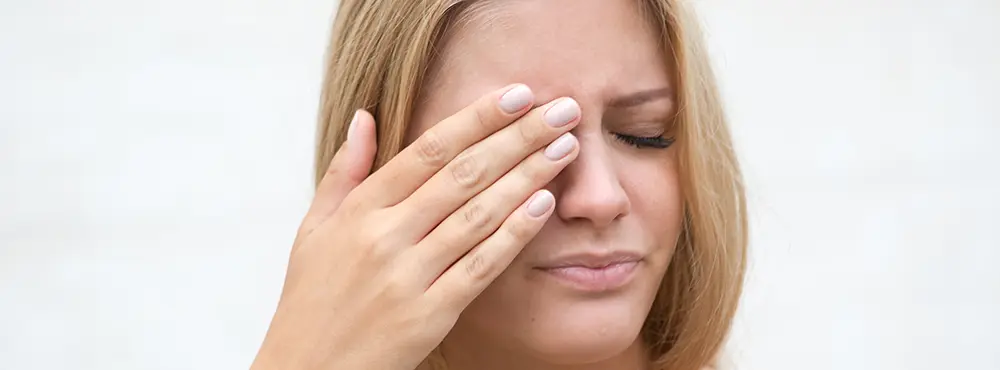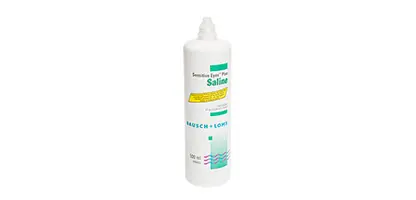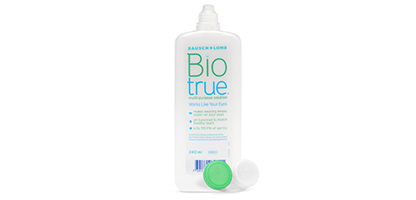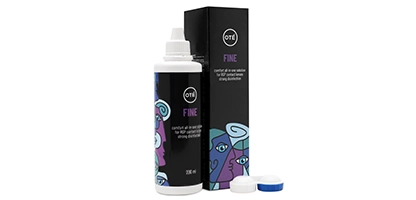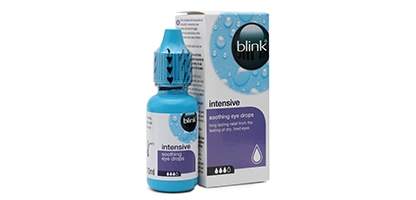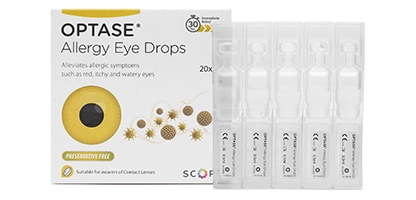2. Your lenses aren’t the correct fit
Contact lenses that don’t fit your eyes properly can cause discomfort. If the lenses are too tight or too loose, they may cause friction against your eyes and could lead to a burning sensation. Ensure that your lenses are prescribed by a registered eye care professional who can recommend the most suitable lenses based on your eye measurements and specific visual needs.
3. You may have eye allergies
Contact lenses can attract dust, bacteria, or pollen on the lens surface, causing redness, itchy eyes, or a burning sensation. Some people are allergic to certain chemicals or preservatives present in some contact lens solutions, which may cause a reaction and lead to a burning sensation in your eyes.
We recommend consulting your optician, who will help you choose the best solution to clean and disinfect your contact lenses according to your eye health needs and lens type.
4. Do not use your lenses beyond the recommended time
Wearing contact lenses for extended periods, especially beyond the recommended daily or monthly usage, can lead to increased risk of infection and eye strain. Your eyes require enough oxygen to maintain optimal eye health and comfort. Using your lenses longer can impede this process, possibly causing burning sensations. Adhere strictly to the wearing schedule of the product or as prescribed by your eye care practitioner.
5. You may be suffering from poor eye health
If you have eye conditions such as conjunctivitis or corneal abrasions, the burning sensation can intensify while wearing contact lenses. To prevent symptoms from worsening further, you must not wear contact lenses while suffering from an eye infection.
How do I stop my eyes from burning from contacts?
We recommend that you consult with your optician, who will prescribe you the right contact lens according to your needs.
If you suffer from eye allergies, you may need to consider daily disposables lenses, adjust the lens wear time, or avoid wearing them in certain environmental conditions. Occasionally, contact lenses can help those with allergies as they provide a barrier. If you are sensitive to contact lens solutions, consult your optician, who might suggest a preservative-free or low preservative contact lens solution.

 Offers
Offers Account
Account
 Favorite
Favorite
 Basket
Basket

 OFFERS
OFFERS











